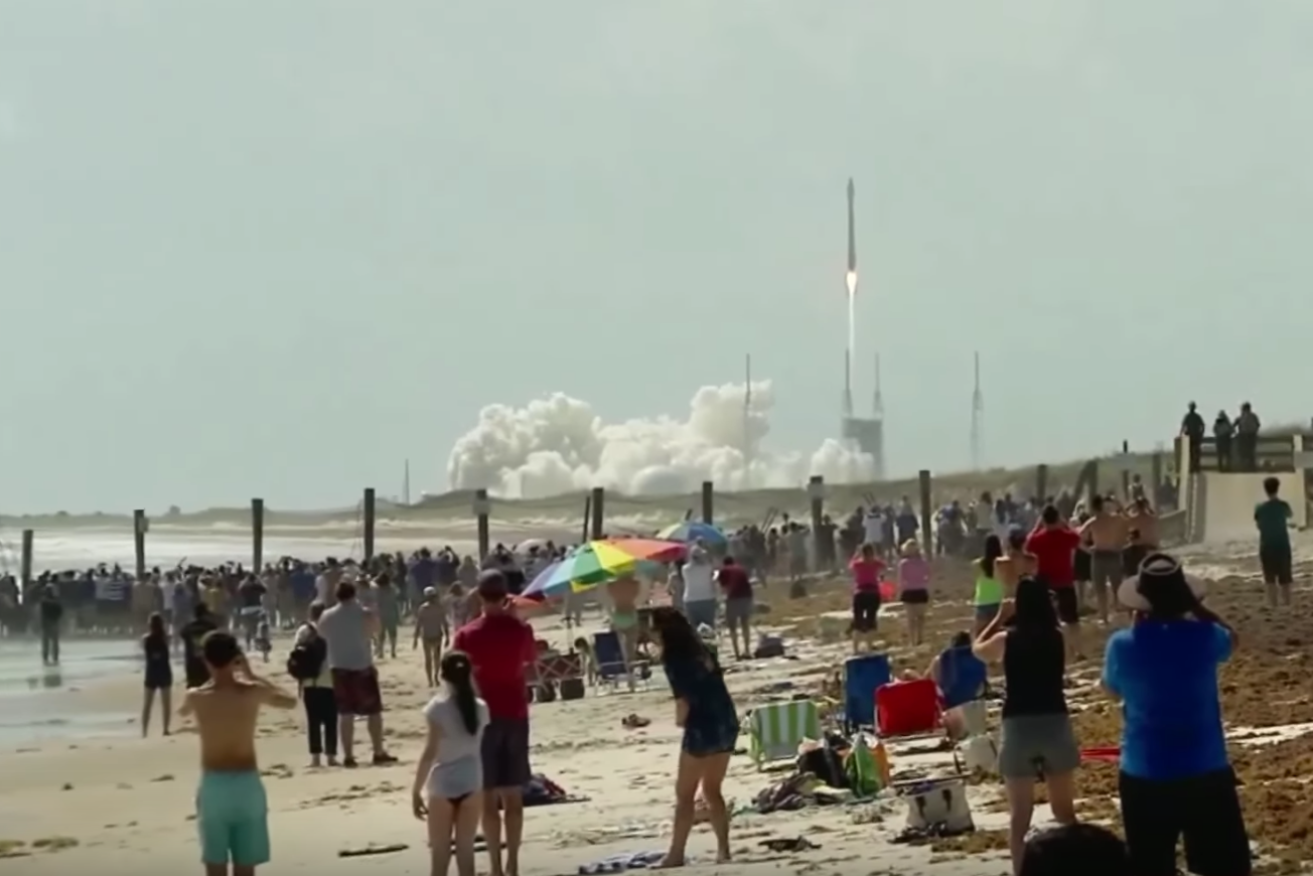Feds consider value of national space agency
The Federal Government is considering the value of setting up a national space agency to guide the industry’s development in Australia.


Onlookers watch the launch of the Atlas V rocket at Cape Canaveral overnight. Photo: YouTube/NASA
InDaily reported yesterday that the State Government has decided to advocate for a national space agency, headquartered in Canberra but with an “operational” base in Adelaide.
Federal Minister for Industry, Innovation and Science Arthur Sinodinos said today that he was weighing up the pros and cons of the concept, which was flagged in a white paper produced by the Space Industry Association of Australia in March.
“I am currently looking at the case for and against doing more in the space area, including the option of an agency,” Sinodinos told InDaily in a statement.
“Our focus will be to build on the areas and the capabilities where our strengths are.
“A lot of what we’ve done in the area has been related to astronomy and using observations for the purpose of industry work here on earth; but increasingly, we want to move toward a strategy that focuses on the strengths of our home grown sector to grow the industry in Australia.”
One of the areas of strength identified by the State Government is the research and development efforts of the state’s universities – credentials that received a boost overnight with successful launch of a University of Adelaide-built satellite from Cape Canaveral in Florida.
The miniaturised “CubeSat” – about the size of a loaf of bread – was launched by NASA on the Atlas V rocket, bound for the International Space Station.
The university says the nanosatellite, the culmination of four years’ work by 50 university students and a dozen staff, is part of an international network of 50 CubeSats and will be among the first Australian-built satellites to be launched for 15 years.
“This is incredibly exciting to see our spacecraft launched to the International Space Station and know that it will play an important part in this research,” said project leader Dr Matthew Tetlow.
“It’s a fantastic milestone and a testament to the team. The whole project has been an invaluable and unique experience for the many students who have worked on it. It’s not every day student engineers get to help build a satellite to be launched by NASA.”
In about a month, the CubeSats will be deployed from the space station into the thermosphere – the layer of atmosphere from about 95km to 500km from Earth. Here, they will take a range of measurements to better understand the thermosphere’s relationship to other layers of the atmosphere and how that affects the planet’s climate.
The State Government provided $300,000 towards the development of the satellite, through the Premier’s Research and Industry Fund. Other backers included The Sir Ross and Sir Keith Smith Fund, Inovor Technologies, the University of Adelaide and the University of South Australia, with in-kind support from BAE Systems Australia, Vitech and ITP Engines UK.
Tetlow said nanosatellites were the future of space research.
“With the miniaturisation of electronics, it’s now possible to put the same amount of research equipment of a full-sized satellite into something that’s about the size of a loaf of bread,” he said.
“The CubeSat can do the same work that a large satellite does at a much reduced cost.”
Adelaide will be the focus of the world’s space industries in September, when the city hosts the International Astronautical Conference.
The conference, billed as the world’s most important space meeting, is expected to attracted 4000 delegates, making it one of the largest conferences ever held in Adelaide.
State Defence Industries Minister Martin Hamilton-Smith told InDaily yesterday that he wanted leadership from the Federal Government to make the most of Australia’s opportunities in the multi-billion-dollar space industry.
“We need some leadership from Canberra – until we get that we can’t progress,” Hamilton-Smith said. “I am pushing federal ministers to pick up the ball and run with it.”
Australia’s space industry accounts for less than one per cent of the global industry, which is worth more than US$323 billion.
The Space Industry Association says that Australia’s space industry produces annual revenue of $3-4 billion and this could be doubled within five years, if the Federal Government established a national space agency to guide the industry.




